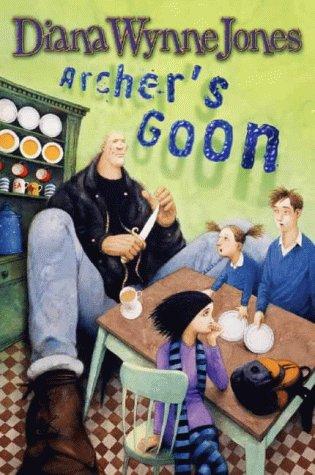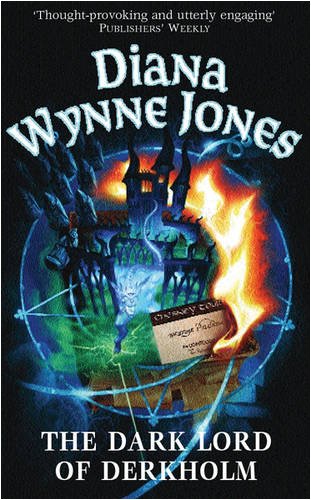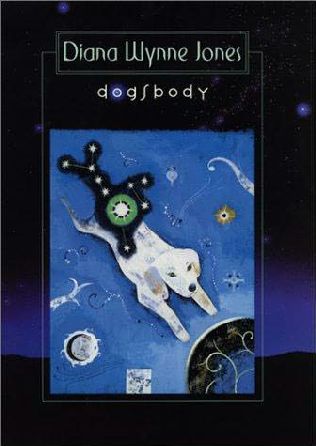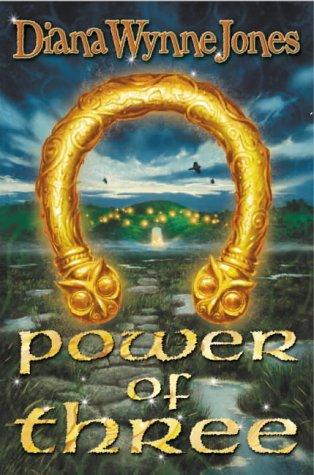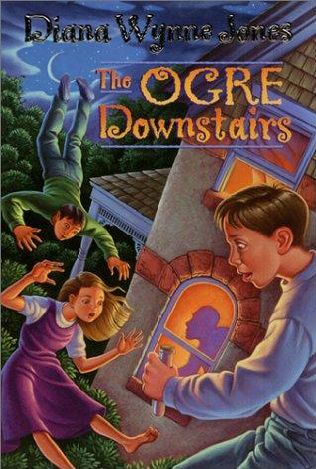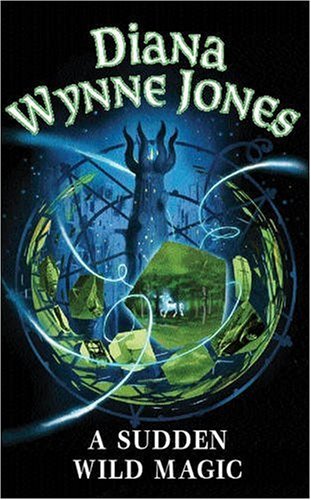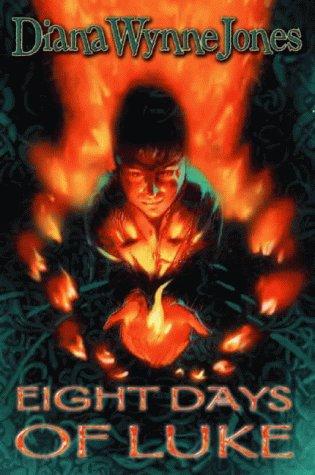Don’t blame me. She has written a lot of books.
The One Where Words Are Mighty
Archer’s Goon
The world it is set in: Modern England, in a town
The premise: When Howard comes home to find a Goon in his kitchen, it is his first inkling that his town is controlled by seven very powerful wizards, all apparently hell-bent on taking over the world. But something is stopping them. They are all, for some reason, deeply interested in the two thousand words that Howard’s father Quentin writes each month, and each swears that she or he is not the one who has been receiving the words over the years. Quentin becomes determined not to write the words, as he fears the wizards will use them to take over the world, and in return the wizards begin persecuting his family. There are lovely layers of deceit and alliance and self-discovery. This is one of my favorites, although I rarely recommend it to people because it is hard to describe.
Something that pleases me: Torquil. With his outfits.
The One that is Clever and Emotionally Satisfying Despite Being Essentially a Parody
The Dark Lord of Derkholm
The world it is set in: The exact world as set forth in The Tough Guide to Fantasyland, from the perspective of the people living there
The premise: A wicked man called Mr. Chesney, backed by a powerful demon, has been exploiting the world for years, forcing its inhabitants to set up their villages and towns for Tourists from another world to travel through. When a group of wizards consults an oracle to find out how to stop Mr. Chesney, mild-mannered wizard Derk finds himself saddled with the post of Dark Lord, though he would rather be designing new animals. Backed by his two human and five griffin children, Derk utterly fails at being Dark Lord, and everything goes absolutely spectacularly to hell. This should appeal to British audiences in particular, as things going spectacularly to hell are a staple of British humour.
Something that pleases me: The relationships between Derk’s griffin and human children. Diana Wynne Jones is good at siblings. Derk’s children have an excellent sibling dynamic.
The One That Is Less of a Cuddly Animal Story Than You Might Expect
Dogsbody
The world it is set in: An English village during the Troubles
The premise: Sirius, the Dog Star, has been accused of murder and exiled to Earth as a dog. As a dog he is adopted by an Irish girl called Kathleen who is living with her uncle, aunt, and cousins while her father is in prison. Sirius has been told that he may be reinstated as the denizen of the Dog Star if he finds a thing called the Zoi, which he has supposedly lost. His dog-self cannot quite articulate what a Zoi is, but he tries to find it anyway, with the help of the Sun and a group of other dogs who appear to have come from the same litter as he has.
Something that pleases me: Sirius making friends with the cats.
The One Where Words Are Mighty But the Plot Is Difficult to Describe (& It’s Not Archer’s Goon)
Power of Three
The world it is set in: A large moor occupied by three races of people
The premise: There is this large moor occupied by three races of people: Lymen, who have the power of words; Dorigs, who can shapeshift; and Giants, who have great strength and machines that work by themselves. There is some contention as to whose the Moor should be. The point of view character is a Lyman boy called Gair, who does not feel that he fits in with his family or his village, and who feels relentlessly ordinary next to his brother and sister, each of whom has a rare and exciting Gift. The title can be taken to mean any number of things, and although I am not describing this book very well, I promise that it is good.
Something that pleased me: Gair is friends with the bees. I don’t know why but this idea appeals to me.
The One with Magic Chemistry Sets and a Wicked Stepfather
The Ogre Downstairs
The world it is set in: Modern England, with attendant nasty schoolchildren
The premise: Actually I covered it pretty well up there. Johnny, Caspar, and Gwinny’s mother remarries, and they do not especially care for their new stepfather, who is sarcastic, or their new stepbrothers, who are posh and superior. The stepfather, in an apparent attempt at making peace, gets a chemistry set for Johnny and one for Malcolm, and these turn out to be magical. Hilary ensues.
Something that pleases me: Caspar and Malcolm switching places.
The One with Sex, for Grown-ups
A Sudden Wild Magic
The world it is set in: Half ours and half another world that is stealing ideas from ours
The premise: There is this other world that is stealing ideas from ours. This would not be so bad, except that the pirate world keeps introducing disasters into our world to see how our scientists and witches cope, and then copying all of those ideas. The witches from our world organize a strike team to go to the pirate world and destabilize them–using sex, as it turns out that all the people controlling the copying of ideas are celibate dudes. Rogue elements become a factor, in particular a lovelorn single mother with very strong wild magic; and things do not quite go according to plan. This is not Diana Wynne Jones’s best book, but I have become rather fond of it anyway.
Something about it that pleases me: Marcus’s baby talk. He says damn damn bitches for jam sandwiches, and like that. It is cute.
The One That Makes More Sense If You Are Up on Norse Myths
Eight Days of Luke
The world it is set in: Modern England, but with Norse gods running around making trouble
The premise: While trying to curse the unpleasant relations with whom he lives, David inadvertently conjures up a boy called Luke, who claims that David has set him free from prison and he wants to help David any way he can, out of gratitude. They have some good adventures together, although Luke does not seem entirely compos mentis at all times, and then people start showing up trying to catch Luke. David makes a deal with one of them, Mr. Wednesday, that if he can keep Luke safe until the end of the week, Luke will be allowed to go properly free. Although Diana Wynne Jones thoughtfully includes a note at the end of the book explaining who is who in Norse mythology and why everyone was behaving that way, you will probably get the most enjoyment out of this book if you had a book of Norse mythology stories as a kid.
Something that pleases me: This book gave Neil Gaiman the germ of the idea for American Gods. I like it that Neil Gaiman is always using Diana Wynne Jones’s ideas to write books that just really could not be more different.
Anyway, there you go. I have still not done all of Diana Wynne Jones’s books, notably sequels (including one of my very favorites, Witch Week, which is one of the Chrestomanci books although Chrestomanci doesn’t show until halfway through) and books that I have not read often enough to feel sure that I’d be able to give a good account of them. These include the Dalemark Quartet, of which I shall be rereading at least one for Diana Wynne Jones Week, A Tale of Time City, and the bewildering and scary Time of the Ghost, which if you’d care to read it and explain it to me, I’d be grateful.
